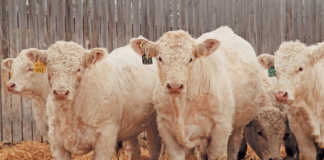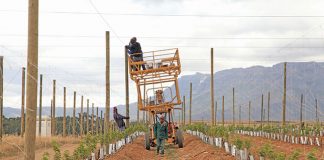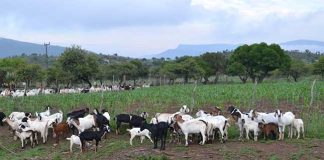
Those of us fortunate enough to reside in South Africa’s Lowveld have ‘magical’ Mozambique on our doorstep.
The mention of ‘Mozambique’ triggers an image of warm seas, golden beaches and ice-cold beer. However, there’s more to Mozambique than that. It’s a country rich in beauty and history, with warm people and great tourist potential.
READ Image matters! Now’s the time for farmers to take action
Mozambique also has huge agricultural potential for tropical crops. With its five ports, including Nacala, the finest deep-water port in Southern Africa, it’s perfectly located to serve the burgeoning Middle East and Asian markets.
Banana, pawpaw, pineapple, mango, coconut and cashew grow wild, and the climate is perfect for crops like cassava, rice, sweet potatoes, cocoa, coffee and sugar cane. Mozambique also has a wealth of natural resources, such as coal and gas.
Rich country, poor country
Contrast this with the island of Singapore, which comprises only 733km² (compared with Mozambique’s 800 000km²).
It has no land available for extensive agriculture. Other than its natural beauty, it has no natural resources at all. Everything needed to meet the requirements of its six million people and its economy is imported.
Yet Mozambique is one of the poorest countries in the world and Singapore one of the richest.
The World Economic Forum ranks Mozambique among the poorest countries of the world, in the company of Chad, Yemen, the Democratic Republic of the Congo, and Haiti.
Mozambique, blessed with vast natural resources, but in abject poverty, and Singapore, a small island with no natural resources, described as the economic miracle of the 20th century, came to mind as I was reading the recently published book Magda: My Journey by Magda Wierzycka.
If you haven’t heard of her, you haven’t been reading the business press lately, in which she is often referred to as one of the richest women in the country.
My Journey is the story of her family’s journey as refugees from communist Poland via Austria to South Africa. Arriving in Pretoria as a 12-year-old in 1982, speaking no language other than Polish, she emerged from the University of Cape Town nine years later with a degree in actuarial science.
After working for a number of financial services companies, she formed Sygnia Limited in 2006, and the rest, as they say, is history. You need to read the book for yourself.
The stories of the varied fortunes of Mozambique, Singapore and Wierszycka hold for us a lesson so often ignored. We blame indifferent performance or failure of our businesses on factors outside of our control: the droughts, the floods, the pandemic, the market and government; but what matters most is management.
Skilled, motivated and stable management is the most important and scarcest resource of all. Yes but, I hear you say, even the best management in the world will never succeed in running a successful business if the country is a complete mess. It may be difficult, I concede, but just look at Wierszycka. She established Sygnia just before the onset of the corrupt and destructive Zuma administration.
Despite this, she has built a thriving business. It’s the magic of management working. There may be exceptions, but if things go well, most of the time it’s due to management; conversely, if things are a mess, it’s management that’s the problem.
More valuable than the climate!
A number of South African farmers, fearful of land claims and mesmerised by the cheap land, sunshine and copious water in Mozambique, established farms in that country.
There are success stories, but many have abandoned these ventures, not due to the lack of good soil, water and climate, but because of the difficulty of finding and keeping good managers on site.
We farmers are all excessively production-focused. Varieties, fertiliser, irrigation, pest and disease control are top of mind, and certainly they are important, but far and away our most important ‘resource’ is our staff, especially managers and supervisors.
The development of our own personal management skills, the selection and development of our staff, and the creation of an environment in which they can grow and thrive are all vital, and eat everything else for breakfast!
Peter Hughes is a business and management consultant.











